Quality Jobs Roadmap: EBC participates in European Commission dedicated hearing with social partners
May 7, 2025
On 5 May, EBC participated in the dedicated hearing on the Quality Jobs Roadmap between the EU social partners and the European Commission to discuss the ongoing work on the roadmap. The meeting provided an important forum to exchange perspectives on how to foster quality employment in the context of Europe’s economic and social challenges.
The hearing opened with remarks from Stefan Olsson, Deputy Director-General at DG EMPL, who emphasised that promoting quality jobs is central to the EU’s socio-economic agenda, particularly as the EU faces a rapidly changing labour market, and the need for a fair green and digital transition. Maria Luisa Cabral, Director for Working Conditions and Social Dialogue at DG EMPL, presented the Commission’s approach, which will culminate in a Commission Communication by the end of 2025. The roadmap will not include a formal definition of “quality jobs,” reflecting the complexity and subjectivity of such a definition. Instead, the roadmap will focus on four key areas: working conditions, ensuring adequate protections regardless of contract type and tackling issues such as subcontracting and enforcement of existing rules; digitalisation, aiming to close the innovation gap while safeguarding workers’ rights; a fair transition, which emphasises training, upskilling, and worker involvement in restructuring processes; and finally, enabling frameworks, including the strengthening of social dialogue, collective bargaining, and supportive infrastructure such as healthcare and long-care services. The Commission underscored that these pillars would form the basis of both legislative and non-legislative actions, guided by ongoing consultations with social partners
At cross-sectoral level, SMEunited underlined the need to avoid a negative narrative suggesting a lack of quality jobs in the European Union. SMEunited advocated for clarity in implementation and practical guidance to support SMEs rather than new definitions, stressing that SMEs struggle with complex compliance demands and low revenues, which can hinder their ability to offer competitive working conditions.
At sectoral level, with the participation of FIEC, EFBWW and EBC, the construction sector was highlighted as an area facing significant challenges and in need of targeted measures to ensure quality employment. Concerns were raised about abusive subcontracting practices, including long layers of subcontractors and letterbox companies. Proposals included exploring the need to limit the number of subcontracting layers, enforce joint liability for main contractors, and strengthen cross-border enforcement mechanisms. The sector was also identified as crucial for achieving the green and digital transitions, with calls for more investment in skills development, vocational training, and the implementation of EU health and safety rules.
Throughout the discussions, social partners stressed the importance of balancing social objectives with economic realities, particularly for SMEs and labour-intensive sectors like construction. The European Commission reaffirmed its commitment to maintaining an open dialogue and developing both legislative and non-legislative tools. The next steps include collecting input from social partners by 1 July, with the final roadmap expected by the end of 2025.
To read EBC position paper on skills and labour needs in the EU construction sector “Crafting the workforce of tomorrow”, click here